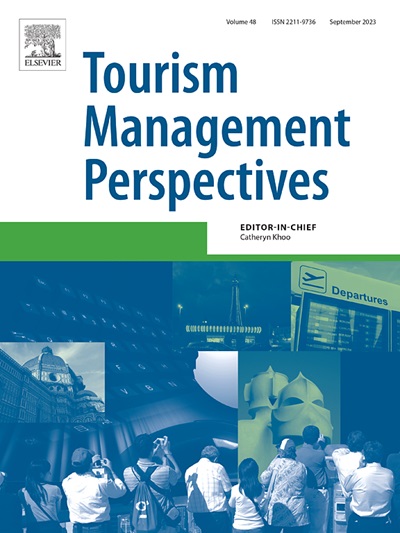游客线上和线下因素对遗产地口碑的影响:想象、情感、真实性和审美
IF 6.9
2区 管理学
Q1 HOSPITALITY, LEISURE, SPORT & TOURISM
引用次数: 0
摘要
尽管它的影响,复杂的机制驱动口碑(口碑)在旅游业仍不清楚。本研究以体验经济、美学和复杂性理论为基础,利用联合国教科文组织世界遗产丽江古城的数据来解决这一差距。通过16次访谈和对384名游客的调查,该研究确定了6个线上和线下因素的23个可测量项目,作为遗产遗址口碑的关键先决条件。fsQCA的结果确定了出现的五种配置解决方案:“情感与建筑真实性类型”、“情感与秩序美学类型”、“想象倾向与传统文化类型”、“想象倾向与秩序美学类型”和“传统文化与秩序美学类型”。结果表明,口碑受线上和线下因素共同影响,强调游客虚拟体验和实体体验的复杂性。这些见解推动了遗产旅游的综合研究,并为更有效的管理策略提供了信息。本文章由计算机程序翻译,如有差异,请以英文原文为准。
The impact of tourists' online and offline factors on word of mouth at heritage sites: Imagination, affection, authenticity, and aesthetics
Despite its impact, the complex mechanisms driving word of mouth (WOM) in tourism remain unclear. Grounded in the experience economy, aesthetics, and complexity theory, this study addresses this gap using data from the Old Town of Lijiang, a UNESCO World Heritage Site in China. Through 16 interviews and a survey of 384 tourists, the study identified 23 measurable items for six online and offline factors as key antecedents of WOM at heritage sites. The results of fsQCA identified five configuration solutions that emerged: “Emotion and architectural authenticity type,” “Emotion and order aesthetics type,” “Imagination proclivity and traditional culture type,” “Imagination proclivity and order aesthetics type,” and “Traditional culture and order aesthetics type.” The results showed that WOM is shaped by both online and offline factors, emphasizing the complexity of tourists' virtual and physical experiences. These insights advance integrated research in heritage tourism and inform more effective management strategies.
求助全文
通过发布文献求助,成功后即可免费获取论文全文。
去求助
来源期刊

Tourism Management Perspectives
Multiple-
CiteScore
15.60
自引率
3.40%
发文量
99
审稿时长
59 days
期刊介绍:
Tourism Management Perspectives is an interdisciplinary journal that focuses on the planning and management of travel and tourism. It covers topics such as tourist experiences, their consequences for communities, economies, and environments, the creation of image, the shaping of tourist experiences and perceptions, and the management of tourist organizations and destinations. The journal's editorial board consists of experienced international professionals and it shares the board with Tourism Management. The journal covers socio-cultural, technological, planning, and policy aspects of international, national, and regional tourism, as well as specific management studies. It encourages papers that introduce new research methods and critique existing ones in the context of tourism research. The journal publishes empirical research articles and high-quality review articles on important topics and emerging themes that enhance the theoretical and conceptual understanding of key areas within travel and tourism management.
 求助内容:
求助内容: 应助结果提醒方式:
应助结果提醒方式:


